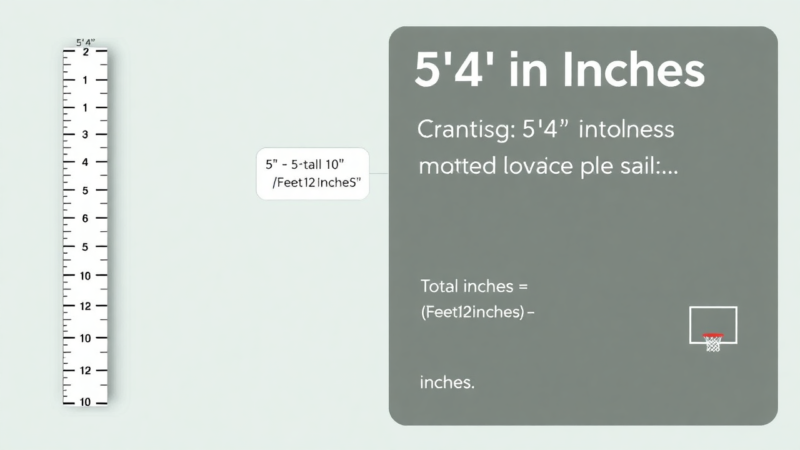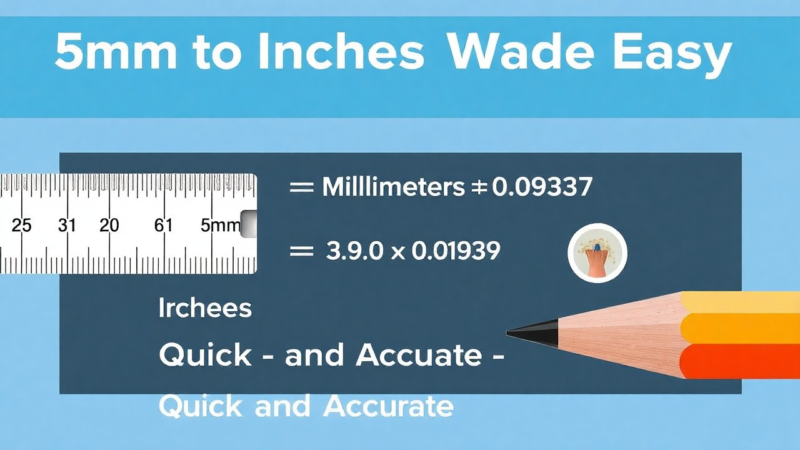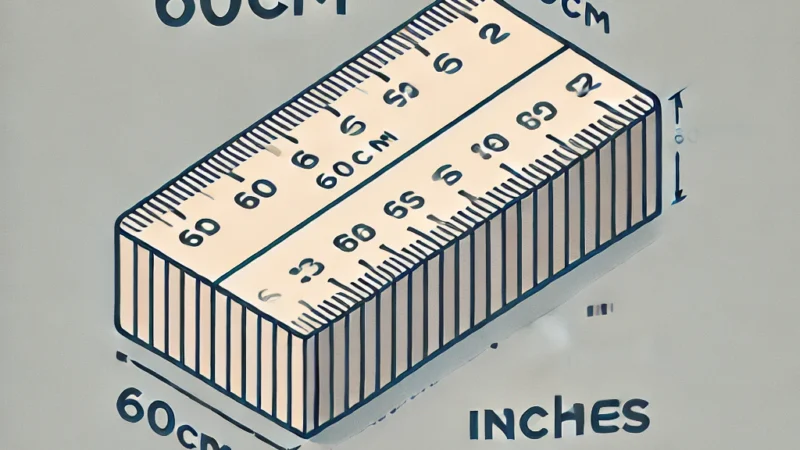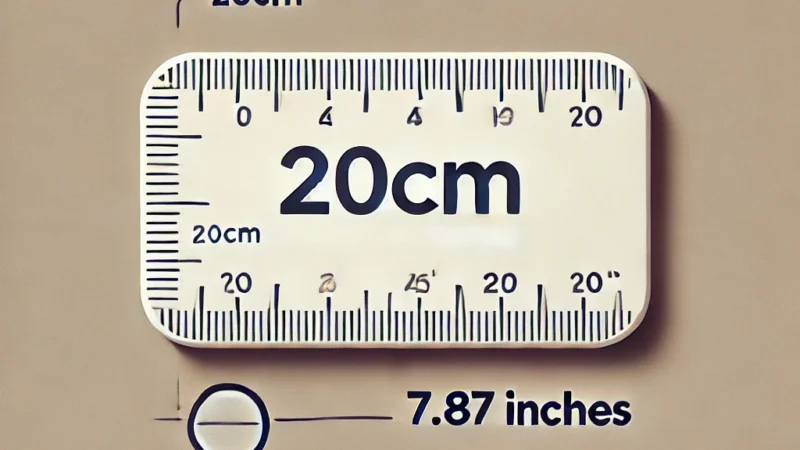Millimeters to Inches: Complete Conversion Guide with Table and Calculator
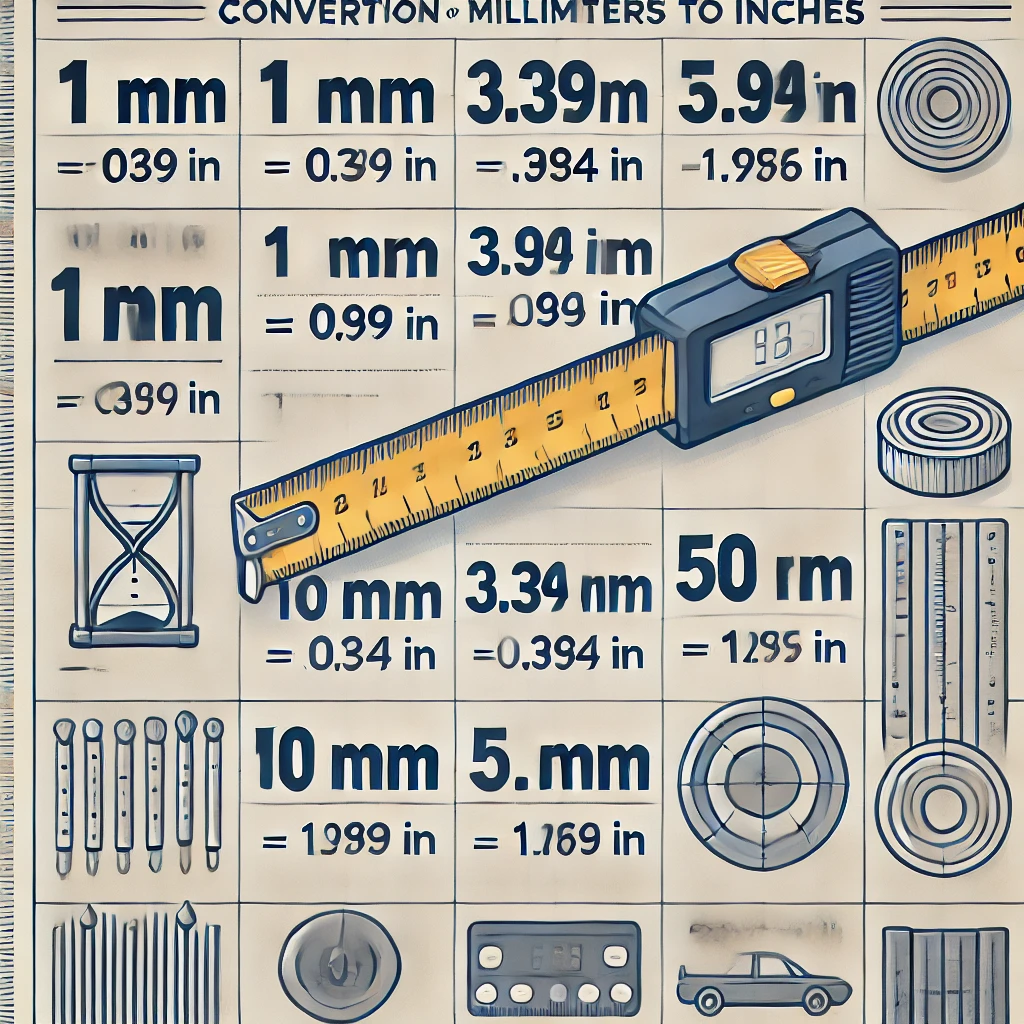
Millimeters (mm) and inches (in) are two common units of measurement used worldwide. While millimeters are part of the metric system, inches belong to the imperial and US customary systems. Converting between these two units is essential in various fields, including engineering, construction, and manufacturing.
In this article, you will learn:
- The mm to inches conversion formula
- A quick reference table
- Step-by-step conversion examples
- Real-world applications
- The best online mm to inches converters
By the end of this guide, you will be able to quickly and accurately convert millimeters to inches for any use case.
How Many Inches in a Millimeter?
The standard conversion factor is:
1 mm=0.03937 inches1 \text{ mm} = 0.03937 \text{ inches}
This means that to convert any number of millimeters to inches, you multiply by 0.03937.
Millimeters to Inches Formula
To convert X mm to inches, use this formula:
Inches=Millimeters×0.03937\text{Inches} = \text{Millimeters} \times 0.03937
Conversely, to convert inches to millimeters:
Millimeters=Inches×25.4\text{Millimeters} = \text{Inches} \times 25.4
Millimeters to Inches Conversion Table
| Millimeters (mm) | Inches (in) |
|---|---|
| 1 mm | 0.039 in |
| 5 mm | 0.197 in |
| 10 mm | 0.394 in |
| 20 mm | 0.787 in |
| 30 mm | 1.181 in |
| 50 mm | 1.969 in |
| 75 mm | 2.953 in |
| 100 mm | 3.937 in |
| 150 mm | 5.906 in |
| 200 mm | 7.874 in |
| 250 mm | 9.843 in |
| 300 mm | 11.811 in |
This table helps you quickly find the inch equivalent of common millimeter measurements.
How to Convert Millimeters to Inches – Step-by-Step Examples
Example 1: Convert 10 mm to inches
Using the formula:
Inches=10×0.03937=0.394\text{Inches} = 10 \times 0.03937 = 0.394
So, 10 mm = 0.394 inches.
Example 2: Convert 50 mm to inches
Inches=50×0.03937=1.969\text{Inches} = 50 \times 0.03937 = 1.969
So, 50 mm = 1.969 inches.
Example 3: Convert 200 mm to inches
Inches=200×0.03937=7.874\text{Inches} = 200 \times 0.03937 = 7.874
So, 200 mm = 7.874 inches.
Example 4: Convert 1000 mm to inches
Inches=1000×0.03937=39.37\text{Inches} = 1000 \times 0.03937 = 39.37
So, 1000 mm = 39.37 inches (approximately 3 feet 3 inches).
Where is Millimeters to Inches Conversion Used?
1. Engineering and Manufacturing
- Many blueprints and product dimensions are listed in millimeters but require conversion to inches for certain industries.
2. Automotive Industry
- Car parts and tire sizes often use both mm and inches.
- Example: A 205 mm tire width equals 8.07 inches.
3. Construction and Carpentry
- Builders and architects often work with mm for precision, but some countries prefer inches for ease of use.
4. Jewelry and Watches
- Watch diameters and ring sizes are often measured in millimeters.
5. Screen and Display Sizes
- Phone screens, monitors, and TVs list dimensions in both mm and inches.
- Example: A 300 mm laptop screen is 11.81 inches.
6. Printing and Paper Sizes
- Photo dimensions and poster sizes are sometimes measured in millimeters but need to be converted to inches for frame selection.
Online Millimeters to Inches Converter
If you don’t want to calculate manually, you can use an online mm-to-inches converter.
How to Use an Online Converter?
- Enter the millimeter value in the input field.
- Click the « Convert » button.
- The tool will display the result in inches instantly.
Some converters also allow reverse conversion (inches to mm).
Common Questions About Millimeters to Inches
1. How many inches are in 100 mm?
100 mm = 3.937 inches.
2. How do I manually convert mm to inches?
Multiply the number of mm by 0.03937 to get inches.
3. What is 30 mm in inches?
30 mm = 1.181 inches.
4. Is 1 mm exactly 0.03937 inches?
Yes, this is the standard conversion factor.
5. How many inches are in 250 mm?
250 mm = 9.843 inches.
6. How many millimeters are in 1 inch?
1 inch = 25.4 mm.
Conclusion
Converting millimeters to inches is simple: just multiply the mm value by 0.03937. This conversion is widely used in engineering, construction, printing, and the automotive industry.
For quick and accurate results, refer to the conversion table or use an online mm-to-inches converter.

